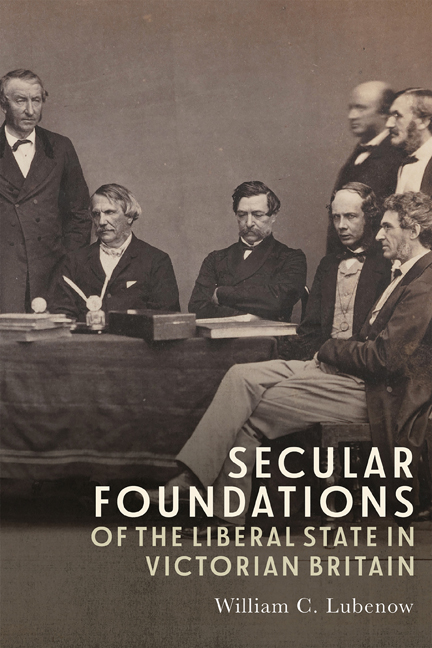Book contents
- Frontmatter
- Dedication
- Contents
- Preface
- Introduction: Methods, Materials, and Theses
- 1 From the Fiscal–Military–Confessional State to the Secular–Liberal State
- 2 From the Northcote–Trevelyan Report to the Order in Council of 1870
- 3 The Haldane Committee and the Creation of the Cabinet Office: Hankey to Hunt
- 4 “Fit and Proper Persons”: The Secular Clerisy
- 5 The Secular Clerisy’s Outillage Mental and Mandarin Solidarity
- 6 Regions of Doubt and Belief – Varieties of Secular Experience: Essays and Reviews, Ecce Homo, and the Gifford Lectures
- Conclusion and Epilogue
- Select Bibliography
- Index
4 - “Fit and Proper Persons”: The Secular Clerisy
Published online by Cambridge University Press: 09 May 2024
- Frontmatter
- Dedication
- Contents
- Preface
- Introduction: Methods, Materials, and Theses
- 1 From the Fiscal–Military–Confessional State to the Secular–Liberal State
- 2 From the Northcote–Trevelyan Report to the Order in Council of 1870
- 3 The Haldane Committee and the Creation of the Cabinet Office: Hankey to Hunt
- 4 “Fit and Proper Persons”: The Secular Clerisy
- 5 The Secular Clerisy’s Outillage Mental and Mandarin Solidarity
- 6 Regions of Doubt and Belief – Varieties of Secular Experience: Essays and Reviews, Ecce Homo, and the Gifford Lectures
- Conclusion and Epilogue
- Select Bibliography
- Index
Summary
Men who distinguished themselves in their youth above their contemporaries in academic Competition almost always keep to the end of their lives the start they have gained in the earlier part of their career.
MacaulayOf all classes of human society literary and scientific men are the least competent to manage men and things…. [As Napoleon advised his brother Joseph] Mistrust all literary and scientific men; treat them like coquettes; amuse yourself with them, but do not try to make wives of one nor statesmen of the other.
Henry DrummondA new era is beginning in politics and unless a man would be a cypher or a paradox should fit himself to it.
Benjamin JowettShall we elect the fittest?
Henry Babington Smith, to the Apostles in 1885FOR Jowett, Dawes, Gladstone, Trevelyan, Northcote, and Lowe, the Northcote–Trevelyan Report opened a different public space for the articulation of what the Civil Service should be. As Jowett noted, if a person wished to avoid being a “cypher” or a “paradox” one would have to make oneself “fit” for it. “Fit and proper persons” was a great Victorian shibboleth. The Northcote–Trevelyan Report called the fittest forth; the Order in Council of 1870 sought to make them manifest. But who were “fit?” How were they “proper?” How were they to be created and how were they to be identified? These were recurrent thoughts which echo throughout the debate on the Civil Service. As Henry Drummond's remark cited above shows, these were not uncontested thoughts. Darwin had given great force to the concept of fitness in his Great Book. His was a statement, however, applied only to the survival and change of physical and organic forms. The concept of competition to produce fitness had more general implications and resonances in the political culture created in the wake of the Northcote–Trevelyan Report. Fitness referred not only to physical properties but to mental ones as well. Hence, in thinking about the secular clerisy who made up this different administrative elite, fitness manifested itself in discussions of “aristocracy,” “character, “merit,” and “duty.” In fact, in Charles Trevelyan's correspondence, from beginning to end, no concept emerges more frequently than the stress he placed on the relationship between fitness and duty.
- Type
- Chapter
- Information
- Secular Foundations of the Liberal State in Victorian Britain , pp. 132 - 175Publisher: Boydell & BrewerPrint publication year: 2024



